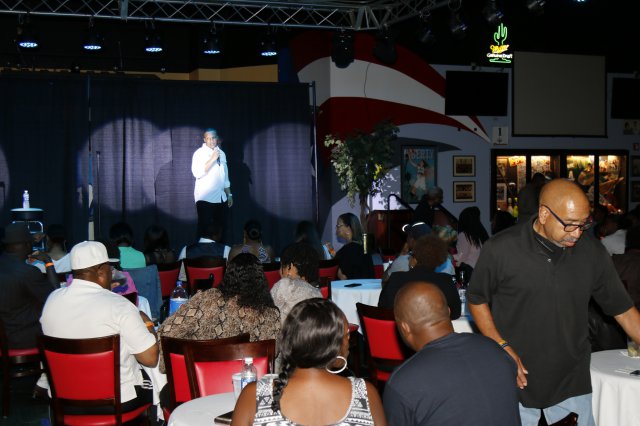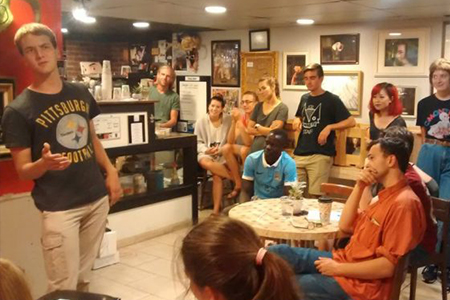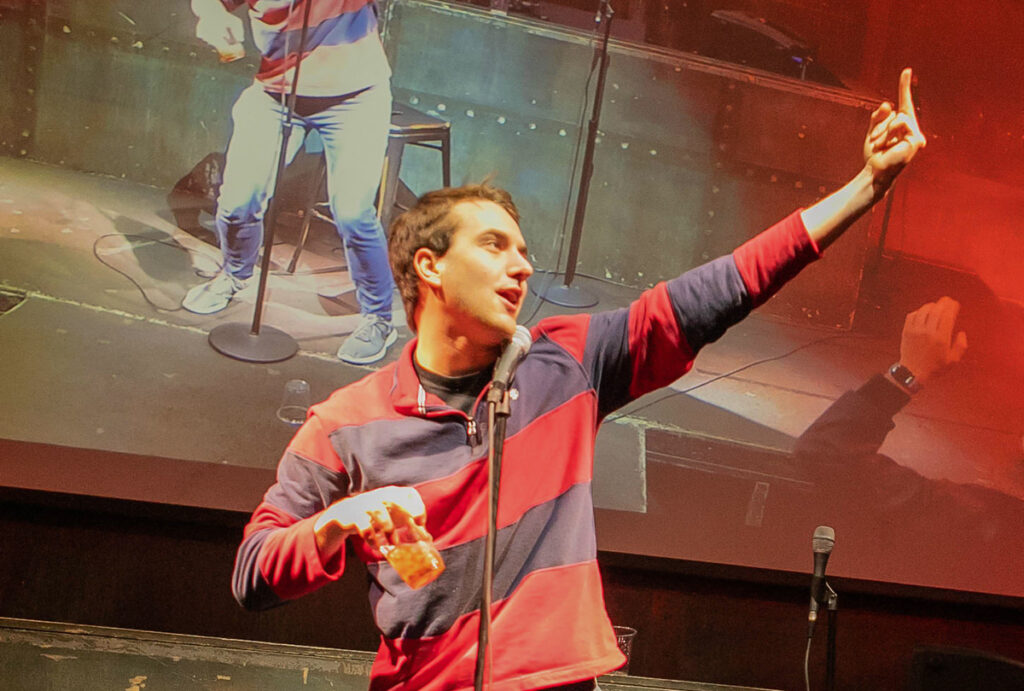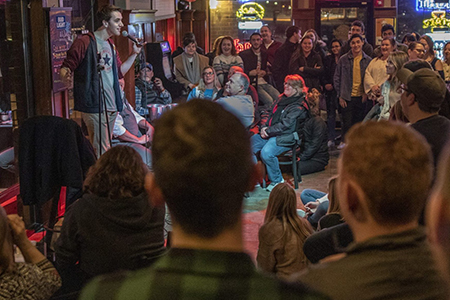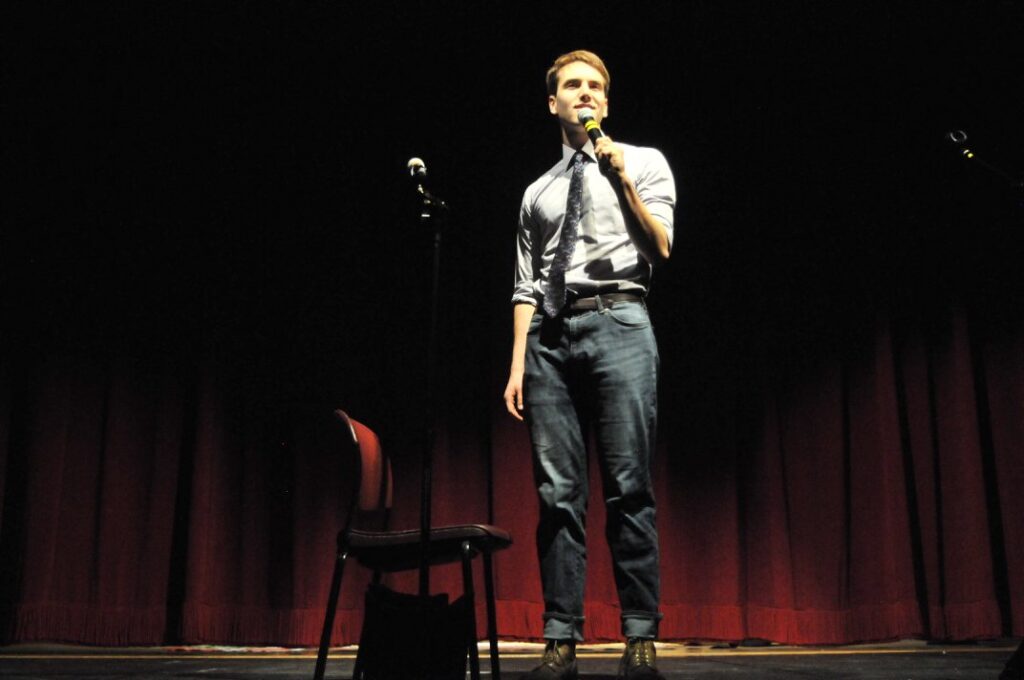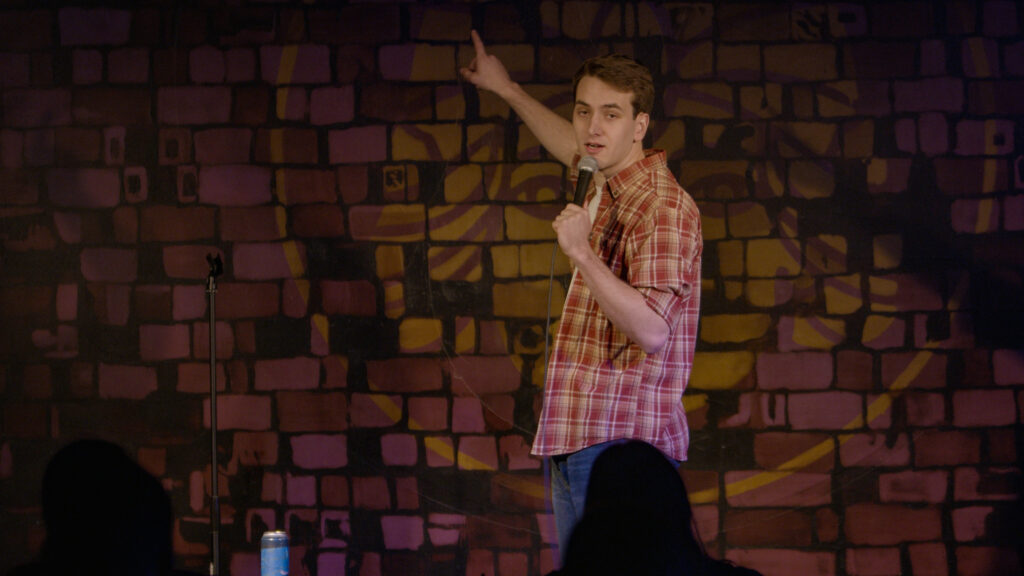Does Stand Up Comedy
Need To Be Honest?
Be funny, be honest
While there are no hard rules in the world of stand up comedy, I think there are things all comedians strive to be. First and foremost to be funny, and second, to be honest. While nobody debates whether or not a comedian should be funny, the role of honesty has been brought up more and more in recent years. What honesty looks like in stand up can look different from act to act, and the way comedians play with the truth might not all be the same. Is truth even necessary for comedy and if so, what roles does it have in stand up?
Now, I’m sure many of you are reading this and are already making a list of times when a comedian’s joke was a lie, or fiction, but still very funny. This is why I think it’s necessary to further define what honesty in comedy looks like, as it’s not always surface-level. For example, comedians often exaggerate parts of stories for comedic effect, or they create a fictional scenario to set up a joke. This does not inherently make the joke dishonest, for example, Emo Phillips’ famous “Heretic” joke: (Video Here)
Last week I saw this guy on a bridge about to jump. I said, "Don't do it!" He said, "Nobody loves me." I said, "God loves you. Do you believe in God?"
He said, "Yes." I said, "Are you a Christian or a Jew?" He said, "A Christian." I said, "Me, too! Protestant or Catholic?" He said, "Protestant." I said, "Me, too! What franchise?" He said, "Baptist." I said, "Me, too! Northern Baptist or Southern Baptist?" He said, "Northern Baptist." I said, "Me, too! Northern Conservative Baptist or Northern Liberal Baptist?"
He said, "Northern Conservative Baptist." I said, "Me, too! Northern Conservative Baptist Great Lakes Region, or Northern Conservative Baptist Eastern Region?" He said, "Northern Conservative Baptist Great Lakes Region." I said, "Me, too!"
Northern Conservative Baptist Great Lakes Region Council of 1879, or Northern Conservative Baptist Great Lakes Region Council of 1912?" He said, "Northern Conservative Baptist Great Lakes Region Council of 1912." I said, "Die, heretic!" And I pushed him over.
Emo Phillips
There is obvious dishonesty in this joke. The joke wouldn’t be funny without the dishonesty. We assume Emo Phillips didn’t have this conversation last week, we also assume that Emo didn’t actually push a man off of a bridge, and we can even assume that the conversation itself isn’t real, because no one speaks in that perfect of dialogue. Despite all the lies we have to believe for the joke to be funny, it is the honesty of the joke that is what makes it legendary. That might be confusing. The joke is predicated on tons of lies and yet is actually incredibly honest? Well, what is the honesty of the joke? It’s the subtext of it. The honesty at the core of the joke is that people will find the smallest reasons to form division. A great observation that is highlighted by the structure of the joke.
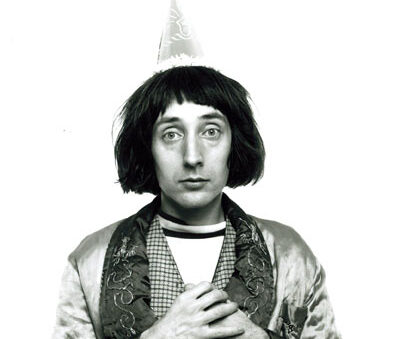
You see, the lies told in the joke, aren’t presented for the listener to believe them, but rather used as comedic devices to make funny the truth being presented. The idea happened “last week”, which we know as a lie, but by making this story more recent the stakes of the situation are raised. It feels more present, conversational, and more pressing of a story. Pushing someone off a bridge is obviously fiction, but if Emo’s reaction to their minor religious differences was also small and rational it wouldn’t be funny. Having an inappropriate to reaction to the response is what makes the joke humorous. Furthermore, the conversation not being real is also an acceptable lie, as the joke is clearly a story of fiction. It is what lets the listener know, that is a joke, and not reality. All lies we must accept to laugh at the comedic truth.
Sometimes, it’s overly obvious honesty that is what makes a joke funny. For example, Steve Martin once said.
Boy, those French! They have a different word for everything.
Steve Martin
It’s such an obvious truth that when you hear someone say it so plainly it’s funny. This joke is derived from the exaggerated obviousness of the truth. We laugh because he is playing a character that is too dumb to understand that having a different word for everything is the basis of different languages. The comedic truth/subtext at this joke is that Steve Martins’ stage persona is a fool. The truth is used to further define his character. At the same time, Steve has jokes that are nothing but dishonest, as he likewise leans into his character or persona on stage.
I gave my cat a bath the other day...they love it. He sat there, he enjoyed it, it was fun for me. The fur stuck to my tongue, but other than that...
Steve Martin
The honesty at the core of both of these jokes is the same. Steve is an idiot. He is playing a character and the characters’ whole thing is that they have a skewed perception of the world that he exaggerates to be funny. The honesty at the core of all of this is that we all are in on the fact that Steve Martin, the man on stage, is a character played by Steve Martin, the man off stage. This is essentially the groundwork for what is “alt-comedy” or parody in stand up.
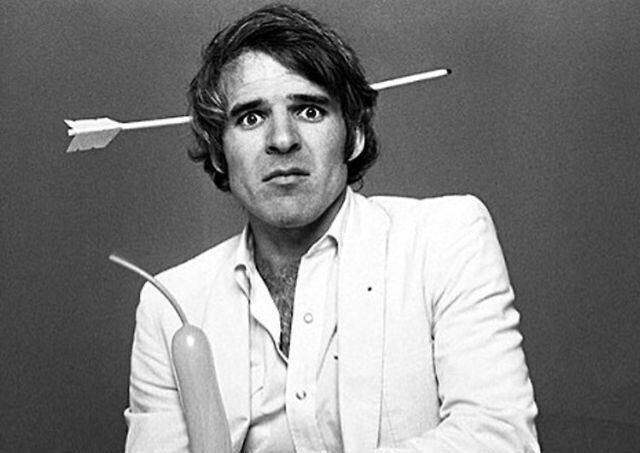
The part of a joke that needs, to be honest, is the underlying subtext of the joke. The rest can be a lie or exaggerations that are used for amplification or comedic effect. Character comics don’t have to be honest because the audience is aware that they are not being honest for the sake of comedic effect. By exaggerating how dumb or dishonest something is, it becomes obvious that the truth you are presenting is in direct contrast to what you are saying. This is what satire looks like in stand up comedy defined formally as, “irony, exaggeration, or ridicule to expose and criticize”. In the tone of satire, someone might say, “I just LOVE politicians, they’re perfect and can do no wrong”. We can delineate that the the truth behind what they’re saying is the opposite, politicians aren’t perfect, and often do wrong.
Now that we have a 5th-grade level of understanding of what comedic subtext is, and how to break down what is honest in parody/satire/character/alt comedy; it is important to point out that The VAST majority of comedians present as themselves on stage. A person on stage with a microphone sharing their thoughts and perspectives with the world through a comedic lens. The person on stage is the same as the person off stage. Unlike sketch or improv comedy it is often assumed that stand up comedians are portraying their own actual beliefs on stage through the subtext of their jokes. The audience is led to believe that what the comedian is saying is their actual viewpoints and their stories. As a result of this, they are held to a higher set of standards by their audiences when it comes to being honest.
Crowds can often sense dishonesty, and when it’s apparent it can be a massive turn-off in most rooms. For example, if an Italian comedian went on stage and talked about how hard it is to be from Bosnia, it would be disingenuous. How can an Italian know the authentic experience of being Bosnian if they are not Bosnian? As opposed to a comedian from Bosnia sharing their funny observations about being from Bosnia. Your perspective is invalidated if your life experiences and background don’t match with what you are presenting. The same could go with any sort of incongruity between a comedian and their material; whether it be race, sex, class, work life, social etc. The exploitation of identity Vs the genuine exploration of it is something I plan on writing about soon.
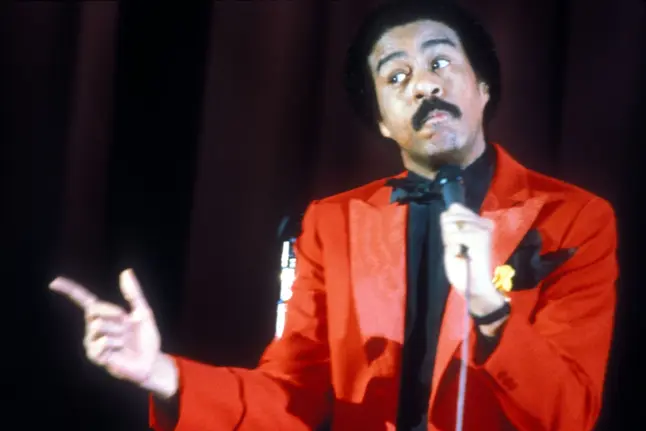
Some comics hide it better than others, and some have even become wildly successful in living a lie. If their fans were to realize who they are off stage it would invalidate their entire act. Their following would shrink realizing that the person whom they once identified with was presenting a dishonest viewpoint. When a comedian presents as themselves, they should be held to present as their honest self. If a comedian shares a crazy story of something that happened to them, it should be a real story, that is what crowds are led to believe. Yes, it can exaggerated. Yes, it can have the details changed. Yes, it can be altered for comedic effect. However, the very essence of the story must be true. If the story doesn’t have to be real then you might as well have AI writing comedic takes and stories for you.
What it all boils down to is honesty or honest subtext is what makes stand up comedy human. That is what makes the art form personal. It’s why stand up feels different from any other style of comedic presentation. In a world of animation, video sketches, comedy theater, and so on… It is the raw truth of just the person behind a microphone that makes stand up comedy live on. There is a certain level of vulnerability behind performing your beliefs and stories as an honest version of yourself. There is a risk that the audience won’t agree or will fail to identify with your perspective in a way that connects. However, that risk is what allows comedians to find their real fans and followers who do identify and laugh along. As I stated up top comedians should be funny, and honest. Without both the art form carries little merit.
More Stand Up Comedy BLogs
How Much does it cost
to book a comedian?
How Much do you pay a comedian?
I hate to say it… but it depends.
The cost to book a comedian depends on a lot of different factors. There is no one price fits all answer, unfortunately. However, by the end of this post, you should be better equipped to pay the right amount of money for a great comedian! As a stand-up comedian myself, these are things that I wish past bookers knew before reaching out for shows. Ultimately, know your budget, know your event, and do some research on who you book. If possible always ask to see a stand up clip of them performing before booking.
Ultimately, there are two categories of factors you need to take into consideration when deciding how much you should pay a comedian.
A) Quality Of The Event
B) Quality Of Comedian

Pay Based On Your event
1) Event Quality-THE COST TO BOOK A COMEDIAN
I use the term quality here to describe the characteristics of your event. I’m not using the word quality to describe the magnitude of how well your event is run.
If your event is a private show that is closed to the public and tickets aren’t available, AND, the comedian will have to travel out from where they’re based AND, have to stay in a hotel, while providing their own speaker and microphone system, AND you expect them to perform clean material on a special subject…
Then the event is going to cost more.
In comparison to a show in the town the comedian lives in, at an established venue where the comedian gets a percentage of ticket sales (or drinks), and they get to run their “club material”.
The more requests you make, the more you’re gonna have to pay.
You have to understand that as a traveling performer, expenses can stack up for a comedian. If they’re going to have to travel, you’re going to need to not just add in the cost of travel, but also how much time it will take for them to travel. Time is money, and I can assure you that comedians would rather be spending their travel time writing jokes or working other shows.
Likewise, if travel is significant you might need to line up a place for the comedian to stay. While I’ve done many independent shows where I’ve gladly crashed on the host’s couch, if you’re booking a comic for anything nicer than that, you should probably factor in this expense too. Travel costs add up for comedians.
The same can be said with other things the comedian has to bring. If you, the show booker, don’t have a quality sound system, just ask the comedian. Most comedians either own a sound system or know a place where they can rent them. Comedians charge a different fee for this depending on the quality of their setup and how far/hard it is to transport. I’ve seen comics charge an additional $50 for this but have seen them go up to $250.
Finally, how niche is your event? If it’s an event where there are few content restrictions for the comedian, then most comedians will do the show for less. However, if you’re specifically looking for a comedian to roast somebody specifically, or you want a rated G comedian who only tells religious jokes, that will cost you more. It takes a lot of time for comedians to write jokes and writing within certain restrictions can be a major strain on some acts.

2) Comedian quality
You pay for what you get.
If a comedian costs a lot there is usually a reason why. A good comedian is an amazing, memorable experience, that your guests will talk about for years after an event.
If you REALLY want to pay a comedian $25 to do a 10 minute set at your workplace holiday party. You can probably find a “comedian” at an open mic in your town that is willing to do that. I have heard stories of people who have tried this, and I can assure you none of these horror stories have ended well.
The way I see it there are 4 tiers of stand up comedians when it comes to pricing*
1) Open Mic Comic
2) Part Time/Showcase comic
3) Full-Time/Road Comic
4) National Headliner
With each tier, the price goes up, but so does the quality, credits, and the comedians demand. If a comedian has multiple show options on a night, then they’re most likely going to go with which option pays them the most. A quick method I use to calculate the budget of a show is how many people the venue can seat multiplied by the cost of a ticket for a show in your city. How do I figure the cost of ticket, well in a simplified method I use the quality of the comedian model above.
1) Open Mic Comic – $1-5
2) Part-Time/Showcase – $5-15
3) Full-Time/Road Comic – $15-30
4) National Headliner – $40 +
- Attendance-based Pay
If you’re doing a show where you want a high-quality regional act for your 100 person room, you could book a “part-time” comedian.
100 x $10 = $1000
This is how I always give rough estimates for my shows. That is, before factoring in a plethora of other features many of which I mentioned in the above section.
Sometimes comedians will charge more for smaller shows, because they’re getting less exposure, and they’d rather cut a deal for an opportunity to play a larger crowd. The guest size model isn’t perfect, but it is a start for negotiations.
- Time-based Pay
It is important to note that model this isn’t even including the amount of time you want a comedian to run, and whether they bring an opener. If you’re looking for under 25 minutes of material this price might go down, if you’re looking at over 30 minutes this price can go up, depending on the setting.
Some stand up comedians charge by how many minutes you want them to perform. This can range from $5 a minute to past $100 per minute. This may sound like a lot, but if you think about personalized live entertainment for a crowd of +200 people $100 minute really isn’t that much.
$15 x 45 minutes = $675
*Clearly this is a simplification
3) More resources
Great, you now have a better understanding of how much to book a comedian for, but you may not know how to reach out or book a local comedian. Luckily I already wrote a blog on that subject too! (wow, crazy)
If you want to book me, you can scroll up and click on my contact for more info, and if you don’t want to book me, then best of luck booking!
You can still contact me, I might be able to guide you in the right direction to find a comedian in your area, that is a better fit for your event!
More Stand Up Comedy BLogs
Leading Up To The stand up comedy Bomb
I started doing stand up my freshman year of college. The school I went to had a Stand Up Comedy Club (SUCC) that had just started when I became a student. The club was small, but would often get messages from other student and non-student organizations about shows. Some of these shows were great opportunities to perform stand up sets in front of other students that were beyond generous with their laughter. However, most of the shows the SUCC was offered we’re from organizations that really didn’t know what to expect.
We would do cancer benefits where students in SUCC thought it was a good idea to tell cancer jokes. We’d get booked to do holiday parties for the college staff and students would run sets complaining about the campus in front of angry administration. Mostly we’d do outdoor events that made no sense, and occasionally an Elks Lodge. I usually performed well at these functions, because a lot of the material I was writing at that time was clean. Which brings me to the worst show I had ever done.

The universities Greek Life had a big variety show every year. It was a contest where if you made it past the first round, you would get to do a weekend of shows in front of back to back sold-out crowds in the universities Great Hall! It was a +500 person theatre that they would pack. The contest was mainly for different fraternities and sororities to perform these “mini-musicals” where they’d take a classic musical and just replace the music with whatever pop songs were big at the time. In between the mini-musicals, they would have variety acts come out and entertain the crowd while they set the stage for the next mini-musical. It was an age-old tradition they called Varieties, but seemed to always be thrown together last-minute in a panic
I was not a member of Greek Life, and was not a fan of it either. However, through a technicality, I learned that you didn’t have to be in Greek Life to enter this contest. I was absolutely determined to enter the Greek tradition and win it. That way none of the frats got to take home the first-place trophy. At the time it was the ultimate Robin Hood scenario in my mind!
Before going up for the first round, I received a copy of the judge’s ballots and saw the criteria by which they had to rank performers. I knew my act didn’t stand a chance against flashier acts like dancers, jugglers, bands, and magicians. So, I designed my set around what the judges HAD to rank the performers on. The categories were along the lines of:
“Dressed professionally” 
“Use of stage” 
“Physicality” 
“Crowd Interaction” 
I am not a physical comic, nor at the time did I do crowd work, but I somehow fit all of that into my set. During the first round, my set went well, and although not the best act on the night, I made the cut for the finals by a technicality!
The Night Of My Worst stand up comedy Bomb

The finals were in the middle of a cold Iowa winter, and despite a blizzard the night of the shows, the Great Hall was sold out both times. I was biking to the show when at a stop sign my bike slipped on ice and flew out from underneath me. I fell on my arm and cut up my shirt and dislodged my shoulder. I pushed myself up to the curb of the road, pushed my solider back in place and started to walk into the Great Hall. Luckily the show was next to the campus convince store, where I brought ibuprofen and bandaids for my bloody hand. I rolled up my dress shirts sleeves to hide where they had torn in the bike accident and walked in the venue just in time to make the call for my act.
The finals were a lot different from the first round of auditions in a few ways, most notably, the auditions were in front of an audience of students, who I largely pandered to. The finals, however, was in front of those same students, but sitting with their grandparents and parents, at an event that doesn’t serve alcohol.
I remember I followed some mini-musical that was vaguely based off of Rick and Morty. As I walked out onto the stage, the sweat on my hand caused the bandaids to fall off. Upon hitting the stage I realized that there was a whole musical pit between me and the crowd. I knew from earlier the room was full, but the first 10 feet in front of me was just a void of musicians setting up, too busy to listen to my set. I started my set and continued to perform 12 minutes to complete silence. At most I won over 2-3 people out of the 500, whenever I did hear a noise it was largely out of pity. The set was BAD. I tried mixing up what I was doing on stage, doing a call and response gags, and breaking out a prop I brought with me, but nothing caught.
When I walked off stage the microphone I had been holding had blood on it from my cuts. I was supposed to hand it off to the next act but they saw the blood and I had to run to get a back up for them.
Before the second show, I decided to change my act to something cleaner. It didn’t work. still crickets. By the end of my second set I was so mad I decided to tell a joke about a time I ended up in a mob of Greek Life students streaking. I knew the bit wouldn’t go over well, I just thought it would be hysterical for the members of Greek Life to have to explain the story to their grandparents after the show. When I finished the story the entire room was completely silent and thoroughly unhappy with the bit I ended with, out of frustration. At the time I was so annoyed with the show that I just dove into the crowd’s distaste for me and just played into it if I was going to bomb at this show, I might as well take the whole room down with me.
The worst part was, only 5 acts made the finals, and due to the stupid criteria on the judges’ ballots, I still took home third place. I had to go up in front of a crowd of people who DEEPLY hated me and pretend like I was honored to receive the award. As I walked out of the venue that night, I saw my guidance counselor (who I never liked) and she gave me a, “Well, at least you haven’t dropped out this semester”. It was so bad that the student newspaper cropped me out of the photo of the winners and only mentioned first and second place. A review in the universities newspaper of my act came out the Monday after Varieties. I still have the review bookmarked on my computer, it reads:
“Matt Banwart, Oh, Matt. You started off the first night
of finals with a few good jokes, but they quickly turned a bit untactful, a least to me.
The second night of finals you brought back some of the original material from the
semis. The second night definitely went better than the first.
You are a charismatic guy, I would just watch for what kind of audience you have.“
I do not mad at the reviewer, that was as polite as they could have put it. I bombed.
More Stand Up Comedy BLogs
3 ways to book local comedians
Why Book A Local Comedian?
As someone who has been performing comedy across the United States of America for over 8 years now, I am always surprised by amazing comedians I find in the oddest places. Some of the best nationally touring comics are based out of places you might not expect! I’ve found great comedians in Billings, Montana, Louisville, Kentucky, and Morgantown, West Virginia. There is comedy talent all over. You might find a great opportunity to hire a high-quality comedian for a fraction of the cost if you know where to look. In this article, I’ll let you in on 3 tips, tricks, and methods for hiring/booking local comedians.

How To Book A Local Comedian
1) Local Comedy Clubs & Venues
If your city has an active comedy scene there is more than likely a local comedy club (or clubs) . It is important to know that comedy clubs can vary greatly from room to room. Some clubs run “traditional shows” where there is an opener/host (Usually local) and then a feature and then headline act. More often than not the feature and headliner come from out of town. The other common show a comedy club might have is a “showcase show”. These shows tend to have anywhere between 5-12 comedians on the lineup, all running shorter sets. If a club does almost only “showcase shows’ they are referred to as “showcase clubs”. All because a show is in a “showcase club” doesn’t mean it has lower quality acts, these are more common in Austins, La, Chicago, and NYC where there is a high amount of local comedians that can headline and are just looking for stage time. What showcase rooms usually have in common is that they feature local acts. If you’re looking for local acts try to find a club with at themed show or a lineup with many names on it.
You can call into clubs and ask who they would recommend locally and they more often than not can provide great insight. In many cities the local comedy club act like a bit of an agency for comedians. If you would rather pick for yourself go to a show and ask a comic after their set. I recommend asking right as they get off stage, because sometime a comic will head straight to another show. If you miss the comic, ask the host of the show, they should have the comics contact information.

2) Local Comedian Facebook Pages
Just about every state or city has a Facebook page for comedians. Often they’re under the name of something like “Ohio Comedy Scene”, “Iowa Comedians”, or “Chicago Suburbs Comedy Scene”. These pages can be tricky to navigate, and often if you don’t know what to post you can end up getting harassed by new comics or spammed by underqualified candidates. I would recommend asking for a 5 minute clip to review or past clubs they’ve worked to help weed out open mic comedians.
Make sure you have a price point ready for your event, and don’t feel like you need to go through every submission. It should be obvious who is a professional and who isn’t usually video & headshot quality are good indicators, but feel free to watch a few minutes of every comedians clip. Be wary of comedians sending you a list of clubs they’ve played at or number of states they’ve done shows in. If you get one of these lists, I would ask how long there sets were on these shows. Sometimes a comic will do a bunch of club mics out of state open mics, and then claim them as credits.
(I’ll admit, I did this when I was a few months into comedy)
3) DM Them
You can often find comedian posting their own clips on social media. I would look up relevant #s like “#XYZCityComedy” or locations that they might tag as places they’ve performed at. Go to your local comedy clubs page and search who has tagged the local comedy club in their clips. If you already know the comedian you want to book, I would recommend you reach out over Instagram or Facebook. If you want a timely response and to show you’re not spam I would comment on a clip and then send them a DM along the lines of, “Hey I really liked your joke about _____, I am booking for ______ on __/__/__ at _:__ I need a comedian who can run __min of material _____(other restrictions or relevant information)___ our budget is $____.”
4) (bonus) Send Me A Message
I have worked all over the US and can usually send you in the right direction. I just want to help people find the right comedian for their event!
I far from know every comedian in North America, but I do have a network of hundreds of comedians who also know hundreds of comedians, and might be able to fins you somebody local.
If nothing less, I can get you started in the right direction. just reach out on Instagram and I will get back to you within a week with information on local comedians. Please consider the first three methods before trying this.
More Stand Up Comedy BLogs
should comedians focus
on just "their" crowd?
Is your crowd legit?
If you have been doing stand up comedy long enough to where you feel like you’ve started developing a consistent comedic voice; you likely have started to notice that you do better or worse in front of certain demographics. Now the question up for debate is should you start focusing your time and energy on specifically that one demographic, and try to really appeal to them, or do you want to appeal to as many people as possible. This is a conversation I have had a lot recently with both younger and veteran comedians. In this post, I’m going to break down both approaches and then offer some closing thoughts on the matter.
Comedians with Niche appeal:
If you want to focus on a niche crowd instead of being able to crush in every crowd you need to consider a few things:
- Few Rooms May Book You, But Some May Love You
You will find that certain venues will want nothing to do with you. Especially starting out. When you’re starting out in comedy crowds aren’t going to shows to see you, they’re going to the venue, for the venue’s reputation. If a venue has a certain crowd and you don’t appeal to their crowd, then they won’t book you. However, if your crowd is the same as the venues, then you’ll be a shoe in to host and feature there. You will be a regular and now your challenge is to keep new material coming and soon regulars of the venue will be diehard fans of your act.
- Is Your Crowd Legitimate?
Are you able to sit down and describe your ideal crowd to a booker? You need to be able to give real metrics to define this crowd. For example, I know some comics that play to what I like to call “boomer/bar crowds”. I would describe this kind of crowd as +45, frequents bars, 50/50 college-educated, and go to shows as dates. They are more likely to give comedy cliches a pass. They don’t want thought-provoking or boundary-pushing jokes and just want a quick laugh. This is an example of a crowd that is specific and has specific traits that a comedian can focus in on and create an act around. Now, this begs the question of what is an example of an illegitimate crowd? If you look at your ideal crowd and all you see is your direct friends, family, or current town then you to need to reconsider because that is not a scalable niche. Nobody outside of your city cares about your hot takes on the Mayor.
Likewise, I would argue that if your crowd is other comedians you need to reconsider as well. Some of my favorite comedians fall into this pitfall. Being a “comics comic” is cool if other people are laughing. Some comics crush at open mics talking about other comics and writing meta-jokes (jokes about jokes), but these acts can fail to have success in front of real crowds and it makes them hard to book.
- Is Your Crowd Sustainable
Is your crowd/material a fad?! Could you be stuck in the disco of comedy? It’s hard to tell, but it is a risk you have to take if you’re going to really dive into a certain crowd. Sometimes certain jokes styles and crowds come and go. If a certain political narrative or comedic style changes or falls out of style, will you still be able to keep your crowd

Comedians with Broad appeal:
If you want to focus on as many people as possible instead of focusing in on a certain crowd you need to consider a few things:
- They Like You, But Do They Love You?
At the end of a showcase, of 10 comics, you will probably be the 3rd or 4th best. Rarely 1 or 2. This is the reality of appealing to everyone. Crowds might laugh at your jokes, but you might not be the act that people will want to talk to after shows. One time seeing your material might not be enough for someone to want to be your fan.
- Ol' Reliable
You are playing the consistency game. If you want to have broad appeal then you will also need to be consistent in that 3rd or 4th spot. A niche comic can bomb and people understand that it was, “Just not their crowd”, but if you’re all in on broad appeal you will need to figure out comedy safety nets for an array of crowds. These kinds of universal safety nets and topics can sometimes be put into the category of “hack”, so you’ll need to keep an eye out for avoiding this constant struggle.
- Pack Your Bags
If you’re pretty good at most venues, you will likely get one-off showcase spots or opener spots at a wide array of venues, but you might find consistent work hard. In short, these comics tend to play a lot of different clubs, but for a short time. While you may not be stuck in a fad, you can find yourself a flash in the pan. You will have to write a lot if you are sticking with a broad appeal because venues will want to hear different things from you because chances are your material errors on the side of forgettable. Your voice/perspective will have to carry your act/writing.
- Who Are You? (Who who, who who)
I have seen comics have this dilemma, sometimes in person sometimes though a long post on Facebook. When you are trying to get everyone to like you, sometimes you can get lost in what your act is. You have to be careful because sometimes your act can start to not feel like your voice anymore. Which can take you down the path of being a “hack”.
Final Thoughts on Comedy Crowds
I think it’s important for anyone who is doing stand up comedy to start really considering who their crowd is or whether or not they have one. At some point, you have to start marketing yourself or reaching out to bookers and these are things that they tend to think about. If you can put yourselves in their shoes and have answers to their questions ready, you’ll be better off.
* I’ll write about what is or isn’t hack comedy in the future
More Stand Up Comedy BLogs
Should Comedians Blame The Crowd?
Do Comedians Even Get To Blame The Crowd?
Anyone who has done stand up comedy has heard the complaint, “I would have done better if this crowd wasn’t garbage”. One of the worst feelings in stand up comedy is not connecting with the crowd. Stand up sets live and die by whether or not the comedian can build some sort of connection with the audience. If by the end of a comics set, they have failed to win the room over, is it you their fault or the crowds?
More often than not, I think the comedian should take the blame for a bad set. This stems largely from my belief that stand up comedy is a service industry job. The job of a comedian is to get people to laugh if they fail to do so, they didn’t provide the service they were hired to provide.
So, when would a bad set be on the crowd? There are a handful of factors, but generally, it breaks down into 3 main complaints.
1) The Crowd Is Too Small
This is a common complaint of stand up comedy open mics and poorly advertised shows alike. People are more like to laugh when they’re in a group. As someone who has been on stage, and in the crowd, people definitely feel free to let loose and laugh when they are part of an audience. This being said, some of my favorite performances have been in front of 5 strangers in a small room. Even if it’s only a few people that are out to listen to comedy, a good comedian should be able to get some sort of laugh, regardless.
Clearly the laughter volume and quality will vary from room to room. Likewise, what is considered a small crowd can vary as well. I attended a comedians theater tour where 800 people attended. However, the venue sat 5,000, which made 800 seem like nothing! A comedian doesn’t always have control over this. My advice for any comic who’s tired of working bad rooms is promote, promote, promote! Be creative with how you reach people. Don’t just spam your Facebook feed with event posts. Go flier, go talk to people, do radio, send out press releases. If you can help drum up a crowd, do it.
2) The Crowd Isn’t The Right Demographic
This is a slippery slope, so I will tread lightly here. Although this can be a legitimate excuse, if it comes up all the time, maybe the comedian should look at themselves. Sometimes comedians lose crowds due to preconceived notions about themselves or subjects they talk about. For example, when I first started comedy I was 18. I learned quickly I couldn’t approach my material the same way a comic in their 30’s does. When I performed in front of younger crowds I could position myself as an expert on a subject or self-aware. However, older crowds just wanted me to tell jokes about novel things and never share opinions. After a while, I found material that would work for both types of crowds. Comedians have to keep in mind that different people perceive them differently. Comedians just need to keep their crowd in mind. If for some reason a comedian did a show for PETA they should use their better judgment and not talk about their love for bacon.
I talk more about this here

3) The Crowd Isn’t Listening Or Is Distracted
BAR SHOWS! Some comedians love them, some comedians hate them. While not exclusively the source of distracted crowds bar shows are a common culprit. It’s hard to win over a crowd when you have TVs behind you are playing the big game. I’ve done bar shows with music running and the crowd was there to talk themselves, instead of enjoying the comedians stand up sets. Comedians can’t stand doing shows for people that don’t want to listen to them.
I once did a set during Sunday Night Football at a sports bar with the games playing (audio on) all over the bar. I got a few laughs, but man, were they hard to earn. Some comics might try crowd work here or perhaps a call and response. Even then, it’s hard to win over a crowd that’s already been lost.
Other Excuses…
Above are some of the common excuses I can entertain for a bad crowd. Here are some examples of excuses that I rarely entertain for why a crowd was bad.
- The crowd too dumb,
- The crowd too politically correct
- The crowd too pretentious
When a comic gets an underwhelming response from a crowd and every other act does well, it’s on them. Bombing in comedy is hard, but comedians avoiding personal blame doesn’t help anyone. It’s best to wait a while, evaluate the set, think of ways to improve, and move on.
If you have any thoughts or comments, send me them on the contact page and I’ll update the article to mention them, and cite you for your contributions.
More Stand Up Comedy BLogs
Is stand up comedy a business?
Getting in to comedy as a business
First and foremost, if you’re considering getting into being a stand up comedian to make a quick buck, you’re not in the right place. Look for a diffrent side hustle. If you want to get into comedy as a show producer, then there is more money available early on, Imight write about that later. However, if you want to be a perfoming comedy act that makes significant money from the beginning, look somehwere else.
When I started comedy, one of the first pieces of advice I received is that “Show business is two words, show, and business”. Now I wouldn’t say this is great advice, but I also wouldn’t say it’s bad advice. I have been performing stand up for +5 years now, have 2 business degrees, worked in corporate, and for multiple startups.
I disagree with what I think the person who gave me the advice was trying to say. What they meant was, that you need to start branding and competing in comedy as if your stand up comedy is a business. This is a strategy that I see a lot of new comics* take. The problem with this approach is that you aren’t ready to be making business-level decisions with your comedy. If you’re trying to brand your comedy after a few months or even a year, you’re screwing yourself over.
The hard reality is, you’re probably not that funny, don’t have a distinct comedic voice, nor do you really have fans. If you start trying to get into comedy clubs or big shows right away you will probably deter show bookers. Even if you do get their attention and get an audition, or they watch your comedy clip, you aren’t in a better position. If you send someone a sub-par stand up clip or bomb at an audition you will probably never get booked by them again. There are so many great comedians coming up right now, bookers often don’t waste their time on second chances.
Comedy Is Not A Competition
In a similar vein, I don’t believe it is beneficial to “compete” in comedy, like you might in other occupations. That is not to say you shouldn’t be driven, you should be. What I am saying is that you shouldn’t compare your success or value as a comedian off of another comedian’s success. The first reason is obvious, it can be crushing to see a comedian that you consider yourself on par with suddenly catch a break when you have yet to. It is not uncommon to see a newer comic get a lot of momentum early on. It does you no good to be jealous or compare yourself to them, becasue more often than not, their momentum fizzles out. The advice that I would give is, one person’s success doesn’t hurt you. All because someone is taking off doesn’t mean that you are suddenly worse off. It just means that your time has yet to come. Stand up isn’t a head to head competition, there can be multiple “winners”.
(That sounds cheesy, I know)
The second part of competing that I would be wary of is “vanity metrics”. In the world of business, you have to watch out for false metrics of success. For example, a retail business might boast about how big their inventory is, as a metric of success, but if they can’t sell it, the inventory is useless. Some comics will get obsessed with producing half a dozen comedy shows, but if they’re all poorly produced, then it’s not a good metric. Even if you are a great show producer, that doesn’t mean you’re funny. It may get you booked in the short run of things, but in the big picture, no out of town comedy club is going to book you becasue you “Run a killer independent room”. Going even further, you might be on a good run of showcases, but that doesn’t mean you’re the funniest comedian on those showcases. Everyone has a hot streak now and then.
I like to brag about having performed comedy in +20 states, does that mean I’m a good comedian? No! It’s fun to say, sure, but if you obsessed over these metrics you’re missing the point. The only metric that matters is being funny, and that’s what you should focus on.
So, how is comedy like a business?
Joke Writing Is Product Development
This leads to my final point, which is how I view comedy as a business. I like to think of my joke writing process in the same way companies view new products going into the market. Using the Product Development Cycle as a guide, or way of conceptualizing my joke writing process. If your joke/product doesn’t respond well to market tests, then you should probably fix it before launching

- Idea– Joke idea/premise comes to mind, write it down right away!
- Research– Check if someone else has a joke like it, dig deeper into the idea, do some research on the subject.
- Develop– Start writing it out, get the correct wording. Make sure the joke isn’t too wordy and make sure it makes sense with your voice and comedy routine.
- Testing– Run the joke at a couple of open mics (3 mics before I really evaluate the quality of a joke) to get a good read on it.
- Analysis– What went well? What can you change? How did the crowd respond?
- Intro– If it went well run it on a show!
- Repeat.
Other Thoughts On Business & Comedy
- Dress for success – Does your attire benefit your act? Don’t wear shorts on stage, it looks bad. That is unless you’re a “shorts comedian” who has a tight 5 minute set on shorts.
- Go to work – Write daily, even if you’re not “inspired”. Set time aside, put pen to paper and don’t take it off until you’ve finished a thought.
- Network – The term “networking” sounds insincere, but if you think someone is funny, tell them.
*I’m not saying that I am a veteran of stand up comedy by any means, but I’ve been around long enough to see comics come and go and venues open and close.
Updated 10/14/2019 – Grammar & spelling
Updated 11/29/2021
More Stand Up Comedy BLogs
How I got into Stand Up Comedy, My First stand up Set
Improv Comedy First
A common question people use to ask me when I told them I do stand up comedy is, “How did you get into that?”. To be honest, I really don’t remember when I first decided that I wanted to do stand up. Originally, I thought improv comedy was going to be my comedic outlet. In high school speech club, I competed all 4 years in “large group improv”. My team thought we were pretty great, but to be fair, every school thinks that they are great at improv. The main takeaway, at this time, was that I had tons of fun performing improv comedy.
Leaving high school, the one thing that I know for sure was that I wanted to do improv comedy going into college. Unfortunately for me, during my freshman year of college, I did not make the improv troupe at my university. Throughout my freshman year, I felt I had failed to do the one thing I set out to do. (I’ll have to make a whole different blog post about improv sometime).

Writing My First stand up Set
The summer before I started college I had worked at a Boy Scout Camp in West Virginia. While working at this camp, I had started writing jokes about the locals and how different the state was to Iowa. The majority of the jokes were pretty stupid observations, mainly about how many hills there are in West Virginia. Seriously, Iowa is so flat I had never seen so many hills! How do people drive in that state?! After leaving the camp, I didn’t think about the jokes until the winter break of my freshman year of college.
It was a few weeks into the break, and I had run out of things to do around home during the extensive break. I was clearing memory on my phone when I saw a notepad app that I had installed for my West Virginia jokes. It wasn’t until then that I started putting together my first set. At the time I thought my first set was absolutely beautiful! It had act outs, callbacks, different voices, defined punchlines, I even choreographed certain parts. Essentially, I had created a one-man show where I just unfairly shit on West Virginia, relentlessly! For my first set, I was very proud of it. The only problem was, it was about twelve minutes long.

December 23rd, 2015, Festivus.
PERFORMING MY FIRST STAND UP SET
After some research, I learned that Penguin’s Comedy Club in downtown Cedar Rapids, Iowa, had an open mic night on Wednesday nights. Penguin’s Comedy Club was the nearest comedy club near where I lived. That week, so I made formal plans to go down by myself and perform the West Virginia jokes. When scouting out their website, I learned you had to be over the age of 21 for all their shows.
This was a problem because I was 18 at the time. I wasn’t in the mood to wait 3 years to share my hot takes about a state that nobody cares about. At the time, I was afraid I wasn’t going to be let in. I panicked the day of and called in to see if they would let me do the open mic. The bartender was way too cool about the situation; she said it was fine as long as I didn’t try to buy alcohol. In hindsight, I shouldn’t have called, probably could have scored drinks!
When I arrived, I learned that I only was allowed 5 minutes to do my 12-minute set. After learning this, I ran back to my car with my notes. I cut as much as I could and got the set down to about 7 minutes. I know it was 7 minutes because I kept speaking through it in my car with a stopwatch trying to cut it down. The night that I went up, many of the comics were veterans, but there were a few newcomers. Luckily for me most of the comedians that night bombed. (I know it sounds bad, but it was a huge ego boost).
When my name was called, I remember going up to the stage and heading straight into my material. The set was completely void of pauses. Even though I was rushing through, at a record pace, my set went long. However, it only went long by 30 seconds. Somehow I managed to get 7 minutes into 5 and a half minutes. It wasn’t great, but I got a handful of laughs that night, and all things considered, it felt pretty good.
I remember driving home that night just wanting to do it again. I did.
